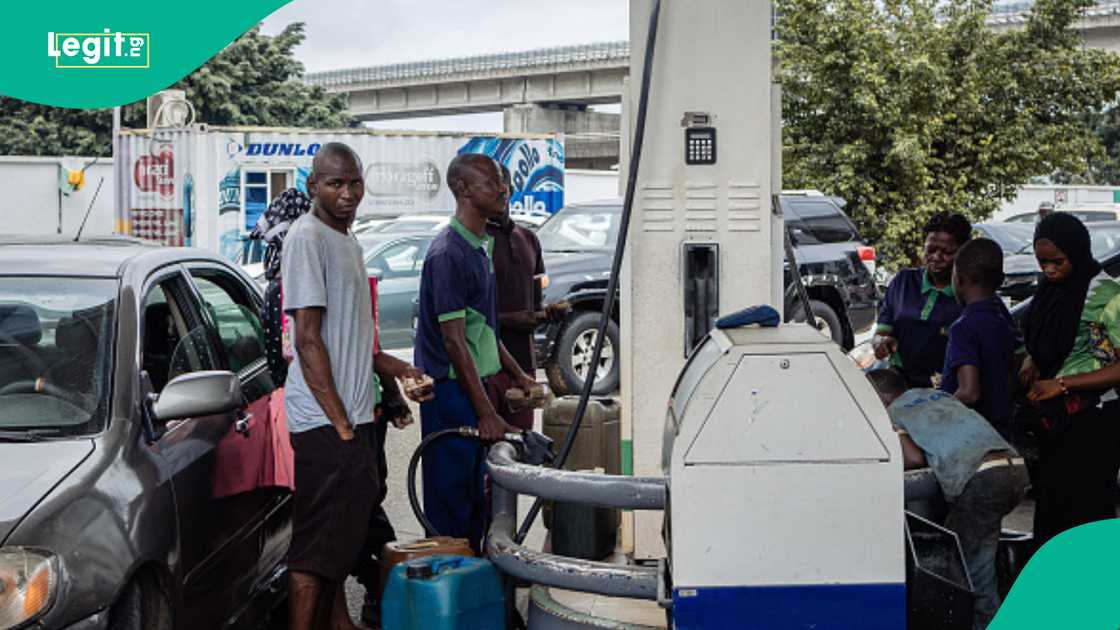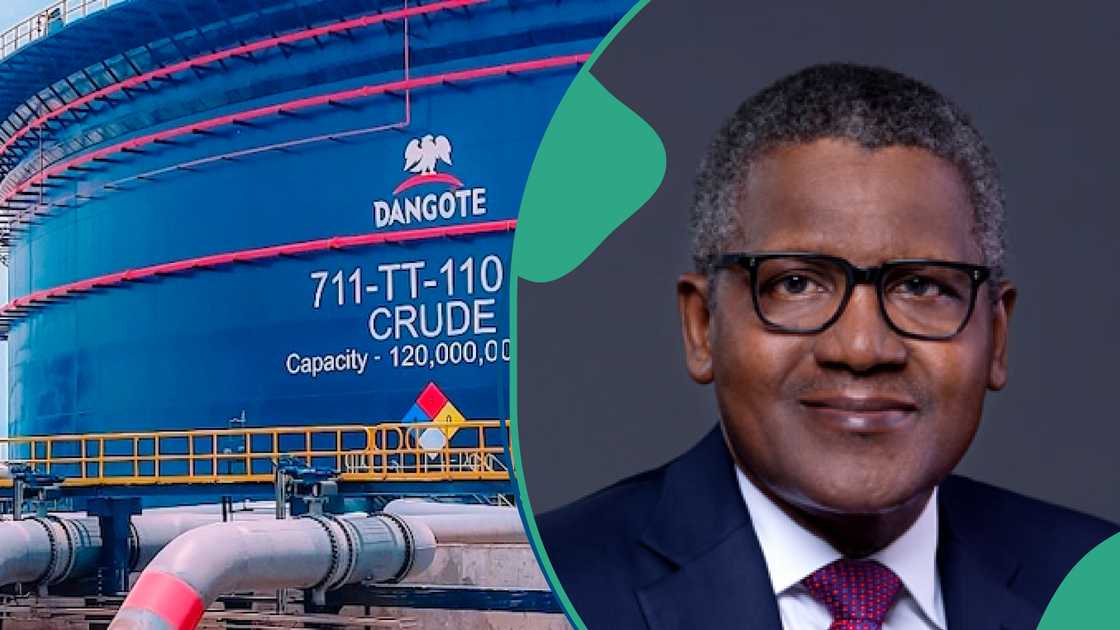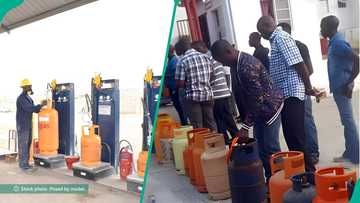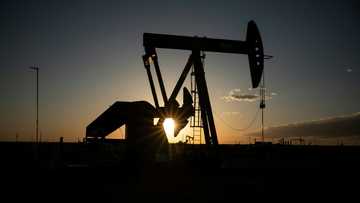The Dangote Effect: Petrol Imports Drop to Lowest in Eight Years
- Nigeria’s petrol imports have dipped to an eight-year low as local refining improves, driven by the mega Dangote Refinery
- According to a report, Nigeria’s petrol imports for September 2025 stood at 116,000 barrels per day, representing 18.44 million litres daily
- Experts said the number was the lowest volume since 2017, showing a dramatic departure from being import-dependent
Pascal Oparada, a reporter for Legit.ng, has over ten years of experience covering technology, energy, stocks, investment, and the economy.
Nigeria’s petrol imports have plunged to their lowest level in eight years, as local refining power led by the Dangote Refinery begins to shake up the nation’s fuel market.
A new report by Argus showed that in September 2025, the country imported just 116,000 barrels per day (bpd) of Premium Motor Spirit (PMS), equivalent to 18.44 million litres daily, down sharply from 154,000 bpd (24.49 million litres) in August.

Source: Getty Images
This was the lowest import volume since 2017, signalling the beginning of a dramatic shift from import dependence to domestic production — a transformation that has been years in the making.
Refining power rises amid challenges
The decline came despite temporary operational setbacks at the 650,000-bpd Dangote Refinery, which underwent maintenance on its gasoline-producing Residual Fluid Catalytic Cracking (RFCC) unit.
The refinery also faced a brief strike by the Petroleum and Natural Gas Senior Staff Association of Nigeria (PENGASSAN) and limited crude supply during the month.
Argus noted, “Nigerian gasoline imports in September again scraped at least eight-year lows, even amid maintenance and labour unrest at the 650,000-bpd Dangote Refinery.”
Despite these challenges, Dangote’s facility continues to disrupt old supply chains, pushing importers to recalibrate strategies and forcing global traders to adjust to Nigeria’s fast-changing market dynamics.
Exports rise, imports fall
In a twist that underscores Nigeria’s shifting oil balance, gasoline loadings for export from the country surged to their second-highest level on record at 77,000 bpd in September.
Some of these cargoes were even shipped to New York Harbour, a symbolic milestone showing Nigeria’s growing relevance in global refined product trade.

Read also
Cooking gas scarcity hits major cities as prices surge over 80%, dealers blame Dangote Refinery
Meanwhile, net gasoline imports fell to just 38,000 bpd, cementing Nigeria’s position as a rising refining hub rather than a pure importer.
Prices steady, no fuel crisis reported
Despite the decline in imports, no fuel shortages were reported nationwide.
Local petrol prices at Dangote’s refinery remained steady at around ₦820 per litre, aided by the naira-for-crude programme. In this arrangement, Dangote pays for domestic crude in naira and sells refined products locally in the same currency.
A brief suspension of local sales on September 26 was quickly resolved following discussions with government officials.
A new era for Nigeria’s energy market
Data from Kpler, a global energy intelligence firm, shows that Nigeria’s petrol imports between January and September 2025 fell by over 40%, dropping the nation from the world’s fifth-largest petrol importer to eighth place.
Though Nigeria remains Europe’s largest gasoline buyer, its import volume has halved from 2024 levels, clear evidence of the “Dangote Effect.”
With domestic refining gaining momentum and global fuel markets watching closely, Nigeria appears to be entering a new phase — one where local production, not imports, determines the rhythm of Africa’s largest economy.
Experts predict zero import
Energy experts predict that in five years, Nigeria will have near-zero petrol imports as Dangote and other refineries hit full capacity.
“For now, depot owners, especially under DAPPMAN, are still importing petrol for reasons best known to them.
But when Dangote and other refineries hit full capacity, it will be near impossible to continue to import, Energy policy analyst, Adeolay Yusuf, told Legit.ng on a call.”
He disclosed that the move will also impact the naira, stabilising Nigeria’s foreign exchange market.

Source: UGC
“We are looking at five years, when Dangote and other local refineries would have increased capacity. This will stabilise the naira as demand for the US dollar will drop drastically,” he said.
Dangote Refinery speaks on petrol prices in Togo
Legit.ng earlier reported that the Depot and Petroleum Products Marketers Association of Nigeria (DAPPMAN) sparked controversy after alleging that the Dangote Refinery sells petrol to international traders at a discount of N65 per litre compared to its Nigerian partners.
DAPPMAN’s executive secretary, Olufemi Adewole, told reporters that Nigerian importers had, in some cases, sourced Dangote’s petrol from traders in Lomé, Togo, at lower prices than what was offered locally.
But in a strongly worded statement on Monday, September 15, 2025, the Dangote Group rejected the accusations as “misleading and inaccurate.”
Proofreading by James Ojo, copy editor at Legit.ng.
Source: Legit.ng




